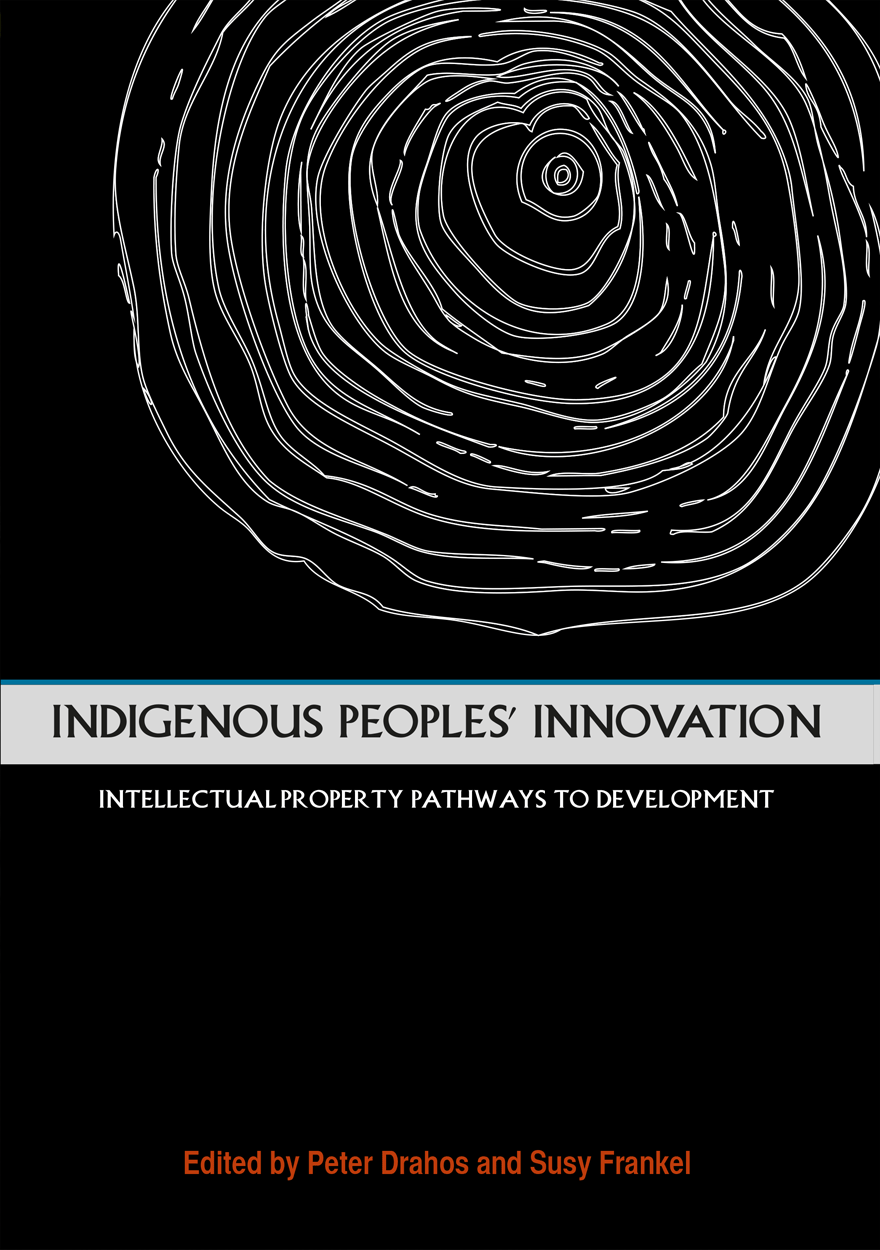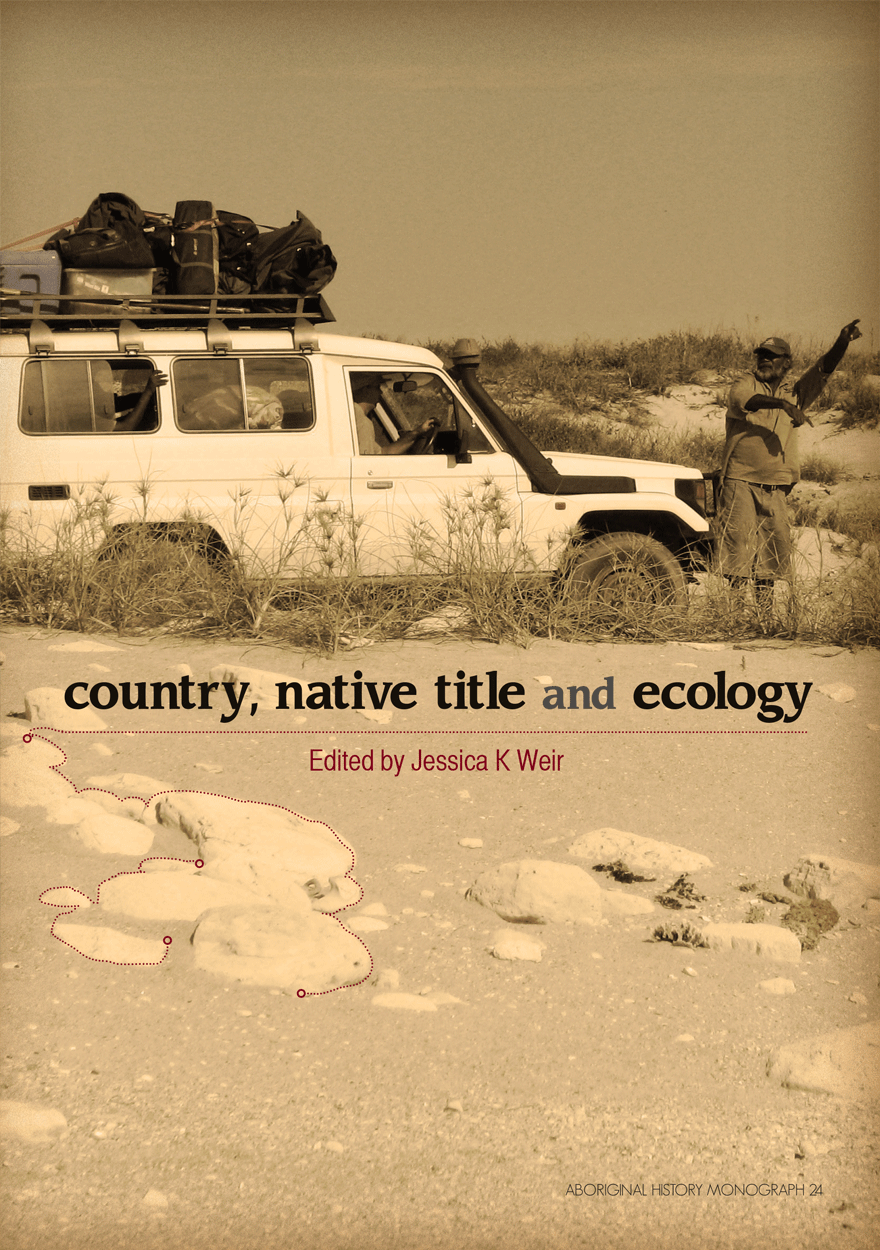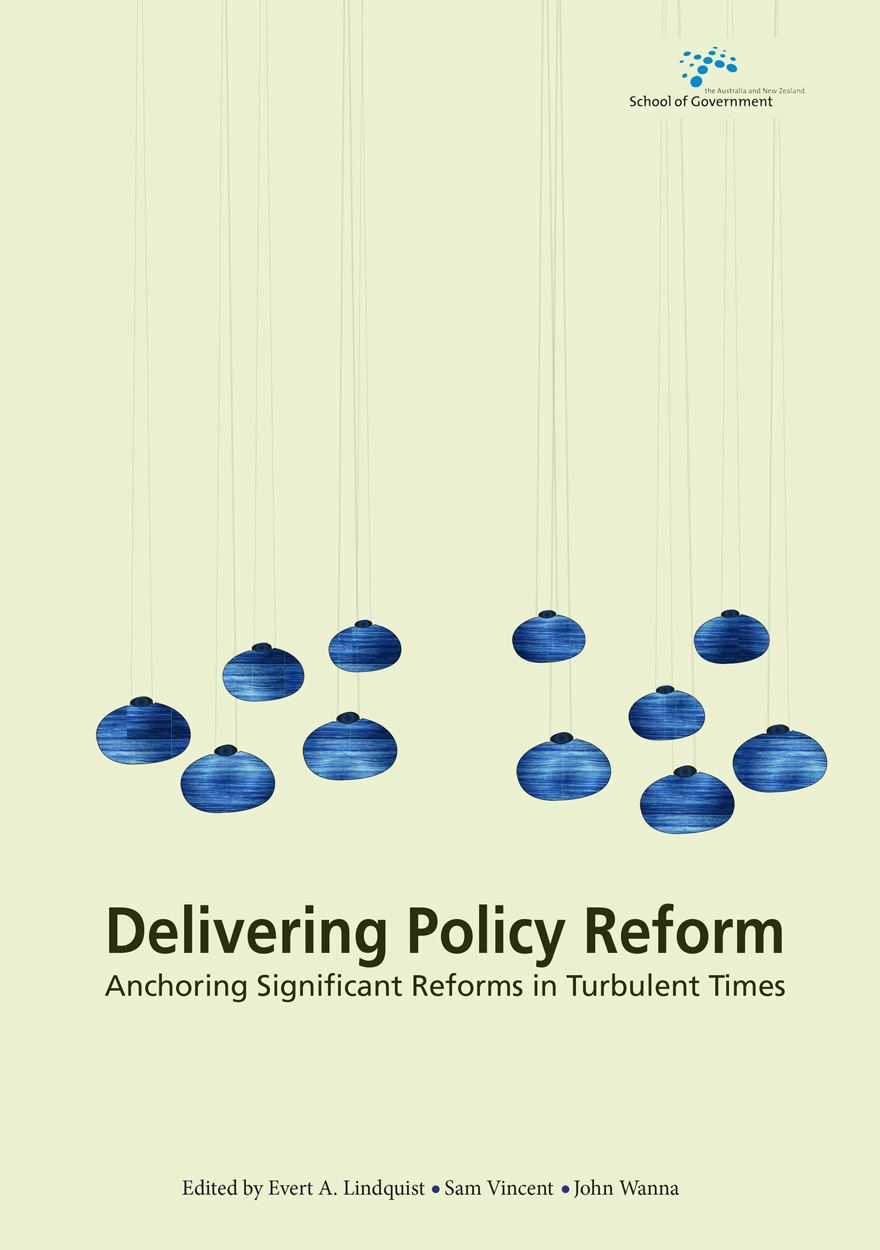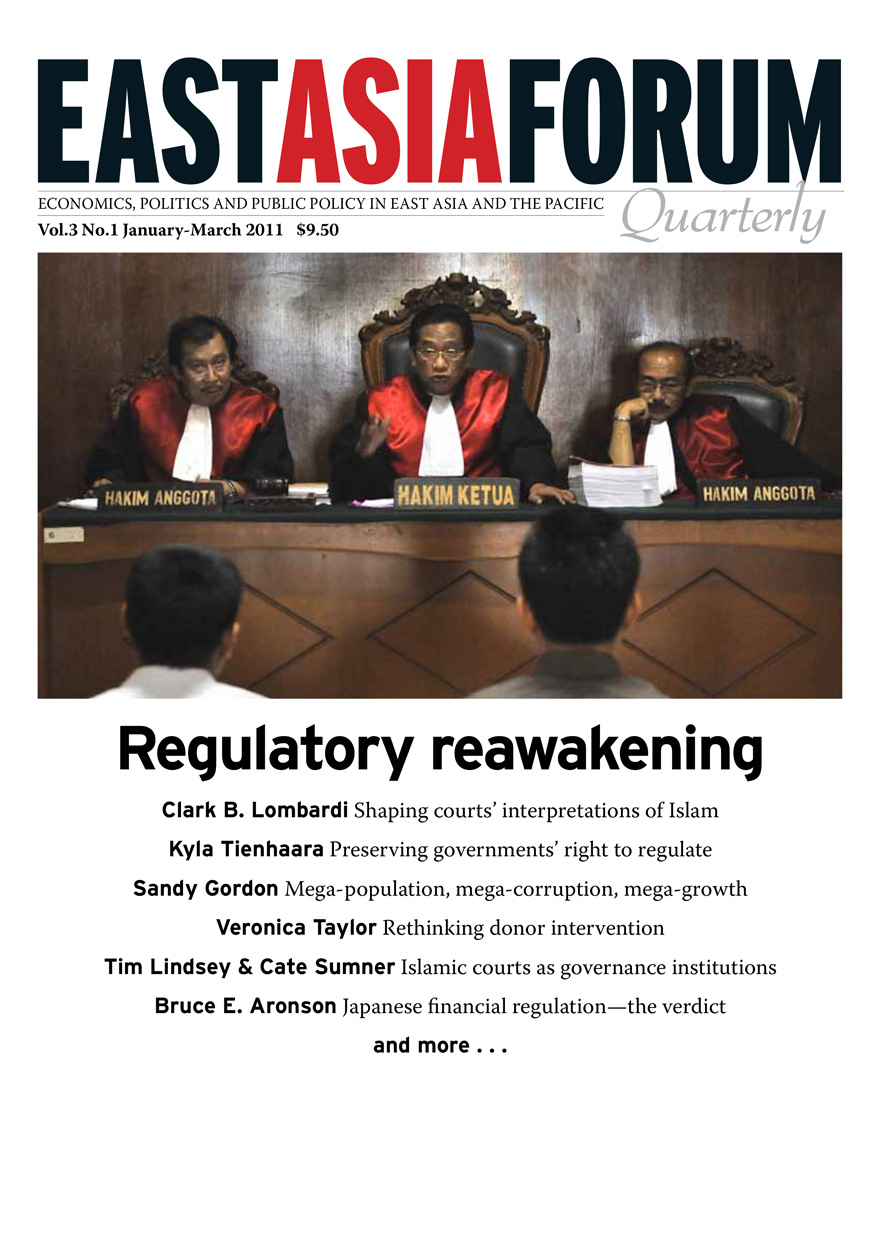Search titles
Displaying results 51 to 60 of 85.

Indigenous Peoples' Innovation »
Intellectual Property Pathways to Development
Edited by: Peter Drahos, Susy Frankel
Publication date: August 2012
Traditional knowledge systems are also innovation systems. This book analyses the relationship between intellectual property and indigenous innovation. The contributors come from different disciplinary backgrounds including law, ethnobotany and science. Drawing on examples from Australia, New Zealand and the Pacific Islands, each of the contributors explores the possibilities and limits of intellectual property when it comes to supporting innovation by indigenous people.

Public Sector Governance in Australia »
Authored by: Meredith Edwards, John Halligan, Bryan Horrigan, Geoffrey Nicoll
Publication date: July 2012
Australia lacks a scholarly book that covers recent developments in public sector governance in Australia and blends cross-disciplinary perspectives from law, management, public administration and public policy. The primary reason for writing this book is to fill the gap in the treatment of this subject, and to provide insights from empirical evidence and current practice.
The book provides the first comprehensive theoretical and empirical work on governance in the Commonwealth public sector. It addresses the issues that emerged under the Howard government as well as their handling under the Rudd and Gillard governments. The book aims to enhance understanding of and communication about public governance across government, industry and the community.
The authors bring to this book expertise gained from political science, public administration and policy, public and private sector law.

Directions in Australian Electoral Reform »
Professionalism and Partisanship in Electoral Management
Authored by: Norm Kelly
Publication date: May 2012
Australia has a proud history of being an international leader in electoral administration, and Australian electoral commissions continue to have a professional, non-partisan approach to the management of elections. Yet their independence is constrained by the electoral laws they need to administer, and parliamentary committees charged with the oversight of the conduct of elections do so with a clear partisan bias.
Elections are all about winners, but who decides who the winners will be? Voters definitely have a big say, but it is the electoral system that determines how votes translate into seats in parliament. Any changes to the electoral system require the support of those in power, and it is important to question who benefits from electoral reforms. It is not surprising that partisanship plays a role and that governing parties usually benefit, although that is not always the case.
This book assesses Australian electoral reforms of the past 30 years using personal interview data and parliamentary debates, to provide a picture of the reform process as well as the outcomes. These issues, such as who gets to vote, the use of postal voting, party registration and vote weighting, have a profound impact on who wins elections. The book also examines Australia’s electoral administration, testing for professionalism, independence and integrity.

Country, Native Title and Ecology »
Edited by: Jessica K Weir
Publication date: March 2012
Country, native title and ecology all converge in this volume to describe the dynamic intercultural context of land and water management on Indigenous lands. Indigenous people’s relationships with country are discussed from various speaking positions, including identity and knowledge, the homelands debate, water planning, climate change and market environmentalism. The inter-disciplinary chapters range from an ethnographic description of living waters in the Great Sandy Desert, negotiating the eradication of yellow crazy ants in Arnhem Land, and legal analysis of native title rights in emerging carbon markets. A recurrent theme is the contentions over meaning, knowledge, and authority.
'Because this volume is scholarly, original and very timely it represents a key resource and reference work for land and sea managers; policy makers; scholars of the interface between post-native title responsibilities, NRM objectives and appropriate heritage protocols; and students based in the social sciences, natural sciences and humanities. It is rare for volumes to have this much cross-academy purchase and for this reason alone – it will have ongoing worth and value as a seminal collection.'
– Associate Professor Peter Veth, ANU College of Arts and Social Sciences, The Australian National University.

Business and the Risk of Crime in China »
Authored by: Roderic Broadhurst, John Bacon-Shone, Brigitte Bouhours, Thierry Bouhours
Publication date: December 2011
The book analyses the results of a large scale victimisation survey that was conducted in 2005–06 with businesses in Hong Kong, Shanghai, Shenzhen and Xi’an. It also provides comprehensive background materials on crime and the criminal justice system in China. The survey, which measured common and non-conventional crime such as fraud, IP theft and corruption, is important because few crime victim surveys have been conducted with Chinese populations and it provides an understanding of some dimensions of crime in non-western societies. In addition, China is one of the fastest-growing economies in the world and it attracts a great amount of foreign investment; however, corruption and economic crimes are perceived by some investors as significant obstacles to good business practices. Key policy implications of the survey are discussed.

Security and Privacy »
Global Standards for Ethical Identity Management in Contemporary Liberal Democratic States
Authored by: John Kleinig, Peter Mameli, Seumas Miller, Douglas Salane, Adina Schwartz
Publication date: December 2011
This study is principally concerned with the ethical dimensions of identity management technology – electronic surveillance, the mining of personal data, and profiling – in the context of transnational crime and global terrorism. The ethical challenge at the heart of this study is to establish an acceptable and sustainable equilibrium between two central moral values in contemporary liberal democracies, namely, security and privacy. Both values are essential to individual liberty, but they come into conflict in times when civil order is threatened, as has been the case from late in the twentieth century, with the advent of global terrorism and trans-national crime.
We seek to articulate legally sustainable, politically possible, and technologically feasible, global ethical standards for identity management technology and policies in liberal democracies in the contemporary global security context. Although the standards in question are to be understood as global ethical standards potentially to be adopted not only by the United States, but also by the European Union, India, Australasia, and other contemporary liberal democratic states, we take as our primary focus the tensions that have arisen between the United States and the European Union.

Law's Anthropology »
From ethnography to expert testimony in native title
Authored by: Paul Burke
Publication date: November 2011
Anthropologists have been appearing as key expert witnesses in native title claims for over 20 years. Until now, however, there has been no theoretically-informed, detailed investigation of how the expert testimony of anthropologists is formed and how it is received by judges. This book examines the structure and habitus of both the field of anthropology and the juridical field and how they have interacted in four cases, including the original hearing in the Mabo case. The analysis of background material has been supplemented by interviews with the key protagonists in each case. This allows the reader a unique, insider’s perspective of the courtroom drama that unfolds in each case. The book asks, given the available ethnographic research, how will the anthropologist reconstruct it in a way that is relevant to the legal doctrine of native title when that doctrine gives a wide leeway for interpretation on the critical questions: what is the relevant grouping, what can be counted as a traditional law and when has there been too much change of tradition? How will such evidence be received by judges who are becoming increasingly sceptical about experts tailoring their evidence to suit the party which called them? This book answers these questions by assuming that there is more at stake here than the mere performance of roles. Rather, there is a complex interaction of distinct social fields each with its own habitus, and individual actors are engaged in an active and constructive agency, however subtle, which the painstaking research for this book uncovers.

Delivering Policy Reform »
Anchoring Significant Reforms in Turbulent Times
Publication date: April 2011
Predictable and unpredictable challenges continually confront the policy settings and policy frameworks of governments. They provide a constantly changing dynamic within which policy-making operates. Governments at all levels are asking their public services to identify innovative and workable reforms to anticipate and address these challenges. Public service leaders around the world are struggling not only to better anticipate emerging demands but also to address reform backlogs. However, time and time again, major policy reforms can prove tough to implement – especially in turbulent environments – and even tougher to anchor over time. This leads to considerable uncertainty and inefficiency as governments and policy communities try to keep pace with change. Policies that unravel or are dismantled are costly and represent wasted opportunities. They lead to cynicism about the effectiveness of governments and public service advice more generally, making it more difficult to deal with other emerging challenges.
This volume of proactive essays on delivering policy reform offers an intriguing blend of strategic policy advice and management insight. It brings together a diverse range of highquality contributors from overseas as well as from Australia and New Zealand – including national political leaders, public service executives, heads of independent agencies, and leading international scholars.

East Asia Forum Quarterly: Volume 3, Number 1, 2011 »
Publication date: April 2011
East Asia Forum Quarterly grew out of East Asia Forum (EAF) online, which has developed a reputation for providing a platform for the best in Asian analysis, research and policy comment on the Asia Pacific region in world affairs. EAFQ aims to provide a further window onto research in the leading research institutes in Asia and to provide expert comment on current developments within the region. The East Asia Forum Quarterly, like East Asia Forum online, is an initiative of the East Asia Forum (EAF) and its host organisation, the East Asian Bureau of Economic Research (EABER) in the Crawford School of Economics and Government in the College of Asia & the Pacific at The Australian National University.
Download for free
Not available for purchase

Civic Insecurity »
Law, Order and HIV in Papua New Guinea
Edited by: Vicki Luker, Sinclair Dinnen
Publication date: December 2010
Papua New Guinea has a complex ‘law and order’ problem and an entrenched epidemic of HIV. This book explores their interaction. It also probes their joint challenges and opportunities—most fundamentally for civic security, a condition that could offer some immunity to both.
This book is a valuable and timely contribution to a limited but growing body of scholarship in the social and structural contexts of HIV epidemiology in Papua New Guinea. The volume offers a unique collection of interdisciplinary insights on the connections between law and order and the HIV epidemic and is presented in a manner accessible to a wide audience, scholars and lay people alike… Significantly, this is the first volume to critically examine the complex and inexorable links between HIV, gender, violence, and security within a theoretical framework that illuminates the challenges of the epidemic for PNG’s future cohesion and stability as a young nation…The importance of this courageous book cannot be overstated. While it communicates an urgent and potent message about the need for immediate action … it offers insightful reflections on the processes and possibilities of social transformation that undoubtedly will have enduring scholarly and practical value.
— Dr Katherine Lepani, Social Foundations of Medicine, The Australian National University.



